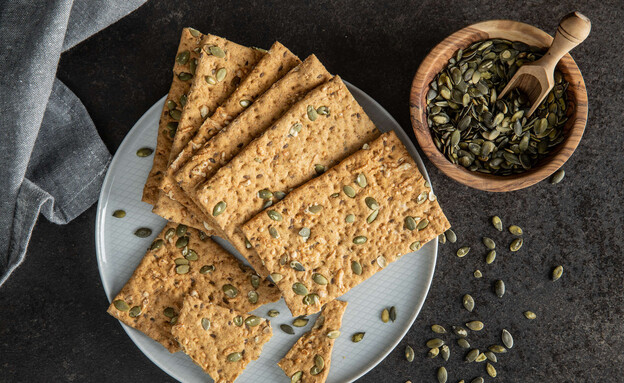What contain pumpkin seeds?
Carbohydrates: These kernels provide the body with carbohydrates that give it energy and contribute to a sense of satiety.
protein: The protein in the pumpkin seeds serves as building blocks for cells, muscles, hormones and more.
Fiber: These help properly digestive and maintain weight.
Minerals: The pumpkin seeds contain essential minerals such as: calcium, which helps build bone and maintain its health; Iron participating in the creation of hemoglobin and essential for anemia prevention; Zinc involved, among other things, in the metabolism and maintains the immune system and more.
Omega 9: These seeds contain unsaturated fatty acids of non-unseen fatty acids help reduce blood cholesterol.
Oxidation Materials: The pumpkin seeds contain a significant amount of carotenoids (antioxidants coming from the well -known plant color and lactopadis), which contribute to reducing the chance of heart and other diseases, and are important for proper organs of organs and processes including the immune system, muscle function and oxygen transfer to organs to reduce and reduce limbs.
Natural or roasted?
It is advisable to consume the pumpkin seeds in their natural form, and choose non -calorie grains or contain salt. It is important to know that roasting the composition of the nuclei’s fatty acids, making it at least healthy, and salt contributes to raising the chance of hypertension and cardiovascular morbidity.
Dr. Sigal Frishman, a major dietitian of Clalit’s hospitals
